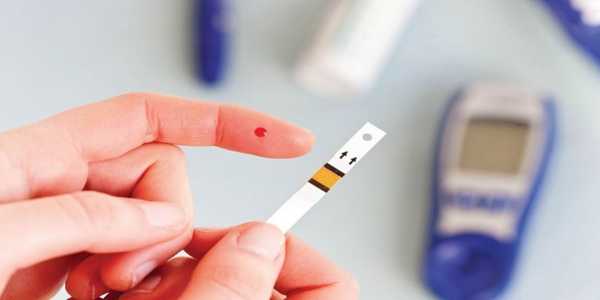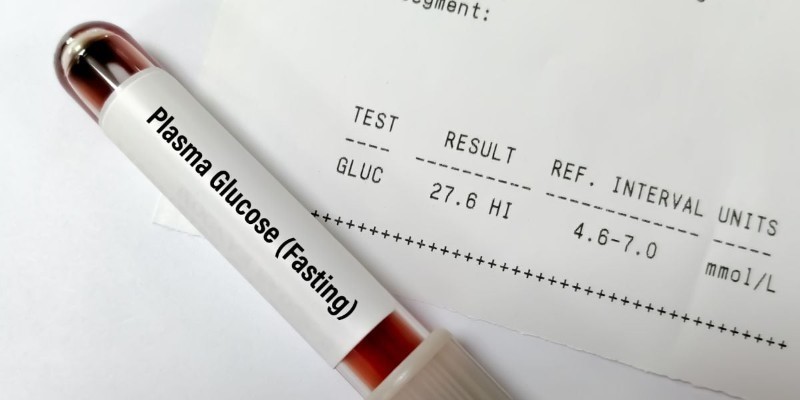
Diabetes Detection: Why Is Early Screening of Diabetes Important?
 Health & medical treatment
Health & medical treatment Diabetes is one of the most prevalent chronic diseases worldwide, and its impact continues to grow. As of 2024, an estimated 10% of the global population lives with diabetes, with millions more undiagnosed. The gradual development of the condition means that by the time many people are aware of their illness, it may already be causing irreversible damage to vital organs such as the heart, kidneys, and eyes. Early screening for diabetes is, therefore, crucial, offering a valuable opportunity to identify the disease before it advances to more serious stages. In this article, we explore the significance of early diabetes screening, the benefits of early detection, and how screening can play a pivotal role in diabetes prevention and management.
Diabetes is one of the most prevalent chronic diseases worldwide, and its impact continues to grow. As of 2024, an estimated 10% of the global population lives with diabetes, with millions more undiagnosed. The gradual development of the condition means that by the time many people are aware of their illness, it may already be causing irreversible damage to vital organs such as the heart, kidneys, and eyes. Early screening for diabetes is, therefore, crucial, offering a valuable opportunity to identify the disease before it advances to more serious stages. In this article, we explore the significance of early diabetes screening, the benefits of early detection, and how screening can play a pivotal role in diabetes prevention and management.
Understanding Diabetes And Its Types
Diabetes is a metabolic disorder that results in high blood sugar (glucose) levels due to the body's inability to produce enough insulin or use it effectively. There are several types of diabetes, but the two most common are Type 1 and Type 2.
Type 1 diabetes is an autoimmune condition where the body’s immune system attacks the insulin-producing cells in the pancreas. It typically develops in childhood or adolescence and is less common than Type 2.

Type 2 diabetes is a more prevalent form, often developing in adults, although it is becoming increasingly common in children and adolescents due to rising obesity rates. In Type 2 diabetes, the body either resists the effects of insulin or doesn't produce enough to maintain normal glucose levels.
Prediabetes is a condition where blood sugar levels are higher than usual but not yet high enough to be classified as diabetes. It is a warning sign, and without intervention, it can progress to Type 2 diabetes.
Why Screening Matters
Diabetes, particularly Type 2, often develops silently and without noticeable symptoms. Many people with elevated blood sugar levels do not experience the classic signs—such as frequent urination, increased thirst, and unexplained weight loss—until the disease has advanced significantly. Because of this, many individuals with diabetes remain undiagnosed for years, leading to long-term complications.

Screening for diabetes helps identify at-risk individuals early, allowing for timely intervention. The U.S. Preventive Services Task Force (USPSTF) recommends routine screenings for adults aged 45 and older, as well as for younger adults who are overweight or obese and have one or more additional risk factors. These risk factors include a family history of diabetes, high blood pressure, and specific ethnic backgrounds, such as Hispanic, African American, or Native American populations, who are more prone to developing Type 2 diabetes.
For those at higher risk, screening may begin earlier than age 45, and those with expected results should continue screening every three years. The goal of early screening is to catch the disease in its early stages, ideally before symptoms develop, to prevent serious complications down the road.
Benefits Of Early Detection
Early detection of diabetes or prediabetes offers several benefits, both for individual health and public health outcomes.

Prevention Of Complications
Uncontrolled diabetes can lead to severe complications, such as heart disease, kidney failure, nerve damage, and blindness. By detecting the condition early, individuals can take steps to manage their blood sugar levels and prevent or delay these complications. Effective management of diabetes, which may include lifestyle changes, medication, and regular monitoring, can significantly reduce the risk of long-term health problems.
Improved Quality Of Life
Diagnosing diabetes early allows individuals to make informed decisions about their health. Those diagnosed early can adopt a healthier lifestyle, including dietary changes, regular physical activity, and weight management. These lifestyle changes can improve overall health and enhance quality of life. Furthermore, early detection allows individuals to begin treatment sooner, which can help reduce the symptoms of diabetes and prevent the disease from worsening.
Cost-Effective Care
Diabetes is a costly condition to manage, especially when it progresses to more severe stages. Regular screenings and early intervention can reduce the need for expensive treatments associated with advanced complications, such as amputations, dialysis for kidney failure, or cardiovascular procedures. By managing diabetes early, individuals can avoid long-term healthcare costs and the burden on the healthcare system.
Psychological Benefits
The psychological toll of diabetes, mainly when it goes undiagnosed and unmanaged, can be significant. People who are diagnosed early often report feeling more in control of their condition, which helps alleviate anxiety and Stress. Knowing that a condition is being managed can also empower individuals to take positive steps in their health, fostering a proactive rather than reactive approach.
The Role Of Screening Tests
Several types of diabetes screening tests are used to diagnose diabetes or prediabetes. These tests are simple, non-invasive, and highly effective in identifying those at risk.
Fasting Plasma Glucose Test (Fpg)

This test measures blood sugar levels after an overnight fast. A result of 126 mg/dL or higher indicates diabetes, while results between 100 and 125 mg/dL suggest prediabetes.
Oral Glucose Tolerance Test (Ogtt)
After fasting overnight, the individual drinks a sugary solution, and blood sugar levels are measured two hours later. A result above 200 mg/dL may indicate diabetes.
Hemoglobin A1c Test
This test measures the average blood sugar levels over the past two to three months. A result of 6.5% or higher suggests diabetes, while levels between 5.7% and 6.4% indicate prediabetes.
Random Plasma Glucose Test
This test measures blood sugar levels at any time of the day, regardless of when the last meal was. A result of 200 mg/dL or higher, along with symptoms of diabetes, can confirm the diagnosis.
Screening For Prediabetes
The importance of screening for prediabetes cannot be overstated. Although many people with prediabetes will not develop Type 2 diabetes, those who do not take action to reduce their blood sugar levels are at a higher risk. Screening for prediabetes allows for early intervention, such as lifestyle changes and monitoring, which can prevent or delay the onset of full-blown diabetes. Evidence suggests that lifestyle interventions, such as a healthy diet and regular physical activity, can reduce the risk of progression from prediabetes to Type 2 diabetes by up to 58%.
The Global Diabetes Epidemic

Diabetes is a growing global concern, with increasing prevalence rates in countries around the world. In regions like the Middle East and South Asia, the rate of diabetes is exceptionally high, driven by factors such as sedentary lifestyles, poor dietary habits, and increasing rates of obesity. Early screening in these regions is vital to combat the epidemic, especially since diabetes-related complications often lead to premature deaths and disabilities.
Conclusion
Early screening for diabetes is essential in the fight against this growing global health issue. By identifying those at risk before the disease progresses, healthcare systems can intervene early, providing individuals with the tools and support they need to manage their health effectively. Early detection prevents complications, improves quality of life, reduces healthcare costs, and helps individuals take control of their condition. For those at higher risk, staying proactive and getting screened regularly is essential to ensure better long-term health outcomes.
